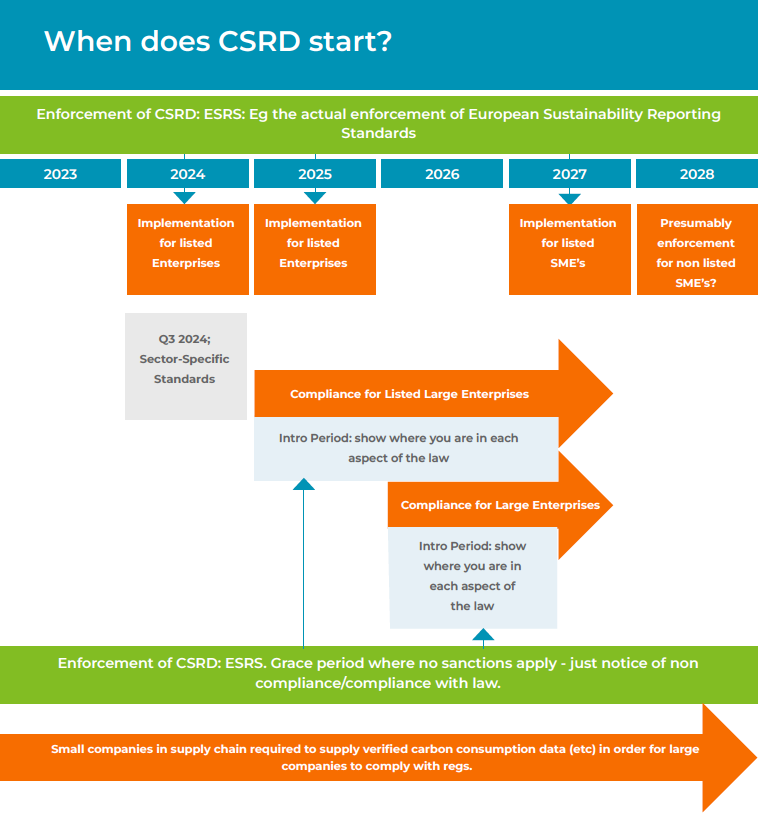AGN Global Business Voice: Practice Management
The Essential Guide to Environmental Social & Governance (ESG) for Accountants – Reducing Risks and Identifying Opportunities. For now, ESG issues only really impact larger firms serving public interest entities, and smaller-to-medium-sized practices probably have five to ten years to make any changes needed – right?
Wrong. This thinking could be a major and costly mistake. AGN believes there is a limited and valuable opportunity for firms to adopt a visible and distinctive position on ESG issues and drive immediate competitive differentiation and commercial benefits.
ESG Strategy
A credible ESG strategy can turbocharge your firm’s appeal when:
- Recruiting younger talent who tend to be more attuned to ESG concerns. Meaningful work and
social responsibility are important factors for Gen Y and Z in choosing a place to work. - Securing work from an increasing pool of businesses (not just large businesses and those
in the public sector) that require suppliers to perform to certain ESG standards and/or whose
vendor supply chains are increasingly under scrutiny for their environmental impact. - Motivating and engaging with existing talented team members who want to have pride and
confidence in doing meaningful work for an employer who is making a visible social and
environmental contribution. - Advising clients on raising capital from banks or investors who are increasingly measured/
regulated on the ESG impact of their investment choices. - Building market reputation and brand value – commitment and responsibility in ESG will grow the reputation of your firm and could attract new clients as well as increase the loyalty of existing
key customers. - Managing performance and risk – Many ESG topics have a direct correlation on the financial
performance of your firm. A proactive approach enables you to maximize opportunities and
manage risks effectively.
1. Not Just a Regulatory Issue – But Regulation is Potentially a Medium-Term Opportunity
Europe is arguably setting the pace in regulatory issues with the EU’s CSRD (Corporate Sustainability Reporting Directive) and the associated ESRS (European Sustainability Reporting Standards). Other international standards bodies are also active in the areas, e.g. Organisation for Economic Cooperation and Development (OECD) and the United Nations.
Broadly speaking, the time frames we are aware of in Europe are indicated in the chart below:

Required sustainability reporting and the very specific measures being rolled out in Europe now
will directly impact the auditors of public, large, and, from 2027, SME organizations and in specific sectors. It’s possible that these reporting requirements (there are 12 new volumes of reporting standards) are likely to have a ‘trickle-down’ effect. For example, small businesses in the supply chain (including our clients) could be asked to produce verified carbon impact data energy efficiency metrics, to provide assurance or testament of ethical practices, and so forth.
But even in jurisdictions where sustainability reporting isn’t yet a matter of regulation, it is fast becoming a matter of best practice. We can anticipate that smaller businesses will turn to their accountants to assist with devising the right approaches and providing this data. We are at risk if unprepared for that eventuality, so it’s best to keep a watch on regulatory developments.
But we should be prepared for two other factors that have yet to crystallise:
a. Specific regulation that targets reporting by smaller companies – it’s not clear if and when
this will emerge, and
b. The emergence of software, sector-based solutions and or specialist consultancies that can automatic regulatory compliance, or at least reduce the likely commercial measurement and attest opportunity for accountants. For example, the emergence of commercial databases that automatically calculate (accurately enough) the carbon footprint of all the lines of typical a purchase ledger, certification bodies (such as B Cert) that lead to audit and attest exemptions, the industry association that provides open book sustainability benchmark data for and amongst its members.
c. A defining theme here is uncertainty as to the timing and form of regulation. However, this uncertainty applies much less to the overall direction and potential commercial impact. Thus, there is a need to remain actively connected as the area develops.
2. But ESG is Bigger than Regulation and Reporting
There are already profitable ESG-related tactics that you could be actioning as a part of a wider strategy. These include cost saving, reducing environmental impact, increasing governance quality or advising clients on the issues. Practical sustainability and governance practices will position your firm well with new clients and new talent.
To reap the commercial benefits of ESG and establish an attractive and differentiated competitive position, you should act now, so let’s look at some of the practical actions available in the short term…
2.1 Environmental Sustainability Policies
AGN members could initiate their journey toward ESG by adopting within their own businesses environmental sustainability policies that reflect their commitment to reducing their ecological impact. These policies might include:
- Carbon Reduction: Setting clear goals to reduce greenhouse gas emissions and offset the remaining carbon footprint through initiatives like renewable energy investments
or reforestation projects. - Energy Efficiency: Implementing energy-saving measures within the workplace, such as using
energy-efficient lighting, optimizing equipment usage, and minimizing waste. - Waste Reduction and Recycling: Implementing comprehensive waste management practices
prioritising recycling, composting, and minimizing single-use items within the office. - Sustainable Procurement: Prioritizing suppliers and vendors that share the firm’s commitment to sustainability, favouring products and services with lower environmental impact.
2.2 Social Responsibility Policies
ESG policies place a strong emphasis on social responsibility and community engagement. AGN members could demonstrate their dedication to these principles through a range of policies, including:
- Diversity and Inclusion: Crafting policies that promote diversity within the workforce, ensuring equal opportunities and fair treatment for employees from all backgrounds. For further reading: AGN GBV Diversity & Inclusion (D&I) – Good Business, Or a Matter Of Survival?
AGN GBV ‘The Great Female Resignation’
AGN GBV ‘Managing Generational Friction’ - Work-Life Balance: Implementing flexible work arrangements that promote a healthy work-life balance allows employees to thrive personally and professionally. For further reading:
AGN GBV ‘The AGN Guide to Hybrid Working and Flex Culture’. - Community Engagement: Establishing initiatives encouraging employee volunteerism, community service, and partnerships with local non-profits.
- Fair Compensation: Ensuring employees receive fair and competitive compensation reflects the firm’s commitment to valuing its workforce.
2.3 Ethical Governance Policies
Governance policies lay the foundation for ethical business practices, transparency, and accountability. Small to medium accountancy firms should prioritize:
- Transparent Reporting: Implementing transparent financial reporting practices that provide stakeholders with accurate and reliable information about the firm’s operations, financial performance, and sustainability efforts.
- Stakeholder Engagement: Demonstrating a commitment to engaging with stakeholders, including clients, employees, suppliers, and the local community, to gather feedback and ensure ethical decision-making.
- Ethical Leadership: Fostering a culture of ethical leadership within the firm, where ethical
behaviour is modelled by leaders at all levels, and integrity is upheld in every aspect of business
operations. - Anti-Corruption Measures: Establishing policies and procedures to prevent bribery, corruption,
and conflicts of interest within the firm’s activities.
2.4 ESG Commercial Opportunities
Accountancy firms have a unique opportunity to influence their clients’ ESG practices. By
incorporating client impact policies, firms can extend their sustainability efforts beyond their own operations:
- ESG Advisory Services: Offering ESG advisory services to clients, helping them understand and implement sustainable practices in their own businesses.
- Sustainability Reporting: Assisting clients in preparing ESG reports that align with recognized frameworks and standards, demonstrating their commitment to transparency and accountability.
- Positive Influence: Collaborating with clients to identify ways they can improve their ESG performance, contributing to a broader movement of positive change.
Clearly, some ESG-related services will take time and investment to develop. Still, putting this aside, many AGN members already have service capabilities that could very quickly be re-directed to deliver ESG value to clients. For example:
ESG Tax
- Renewable Energy Tax Credits
- Energy-Efficiency Deductions
- Green Building Incentives
- Alternative Fuel and Electric Vehicle Credits
- Research and Development Tax Credits
ESG Financing
- Green Investment Funds: Align with clients’
sustainability goals. - Impact Investment Incentives: Govts
encourage investments
in areas like affordable housing and clean energy. - Sustainable Investment Advisories: Source
specialist sustainable investment funds. - Carbon Offset Investments: Clients interested in carbon
offsetting can invest in projects that reduce or capture greenhouse gas emissions.
ESG Advisory
- Regulatory Compliance: Ensure that your clients
are in compliance with relevant laws and reporting
requirements. - ESG Risk Assessment:
Assist clients in identifying and assessing ESG-related risks that could impact
their business operations.
3.0 What You Should Do Now
If this all sounds a little bewildering, but you do have plans to introduce your own ESG strategy
for your firm, then we’ve put together a checklist of practical actions you could take to launch the
development of your ESG approach.
| KEY ACTIONS AND CHECKLIST | WHO, WHAT, WHEN |
|---|---|
| 1. Educate Yourself: | MONTH 1 |
| Start by thoroughly understanding what ESG is and its implications for firms. Research industry best practices and trends and attend seminars, webinars, and conferences on ESG to build your knowledge base. | Become your firm’s ESG expert in the area. Find one or two other partner/mgr enthusiasts. |
| 2. Review Your Firm’s Current State: | MONTH 1 |
| Evaluate your firm’s existing practices, culture, and policies related to ESG, if any. Identify areas where you’re already aligned with ESG principles and areas that need improvement. | Keep it simple, but compile this as a short report to the board for discussion. |
| 3. Build Internal Awareness: | MONTH 1 ONWARDS |
| Widen your discussions about ESG and its importance. Share your findings, insights, and potential benefits for the firm. Ensure that everyone understands the potential impact on the firm’s reputation, client relations, and long-term sustainability. | Highlight what you already do and ask for suggestions about what the gaps might be. |
| 4. Establish Clear Objectives: | MONTH 3 |
| Define specific, measurable, and achievable goals related to ESG. These goals should align with your firm’s values and long-term vision. For example, you might set objectives to reduce your carbon footprint, promote diversity and inclusion, or improve governance practices. | Bring it to the board with a view to launch a dedicated ESG project. |
| 5. Create an ESG Committee: | MONTH 3 |
| Appoint a cross-functional ESG committee comprising representatives from each partner’s area of expertise. This committee will be responsible for developing, implementing, and monitoring the ESG strategy. | Get the board to nominate members of the ESG Committee. Also, seek volunteers (passion). |
| 6. Develop an ESG Strategy and Agree on a Budget: | MONTH 4 |
| Work with the ESG committee to create a comprehensive ESG strategy that includes specific initiatives, timelines, and responsibilities. Ensure that the strategy is aligned with your firm’s values and objectives. | Understand who will support, sabotage or simply resist change. |
| 7. Integrate ESG into Operations: | MONTHS 4-8 |
| Embed ESG principles into your firm’s daily operations. This could involve revising policies, procedures, and employee training programs to incorporate ESG considerations. It could also mean re-directing department heads to focus on commercial ESG product development and delivery. | You will get blockers at this point. You need to empower people who relish change. |
| 8. Track and Report Progress: | MONTHS 4-8 |
| Establish key performance indicators (KPIs) to measure the progress of your ESG initiatives. Regularly report on your firm’s ESG performance to your partners, clients, and other stakeholders. | % reductions in carbon footprint, % energy efficiencies etc etc |
| 9. Continuous Improvement: | ONGOING |
| Review and update your ESG strategy periodically to adapt to changing circumstances, regulations, and stakeholder expectations. Encourage a culture of continuous improvement within the firm. | Get staff input on progress and what else needs to be changed/added. |
| 10. Celebrate Achievements: | MONTH 6 |
| Recognize and celebrate milestones and achievements related to your ESG strategy. This will help maintain momentum and enthusiasm within the firm. | Push forward / recognize some of the more reluctant, now believers. |
| 11. Seek External Certification (Optional): | YEAR 2? |
| If applicable, consider obtaining third-party certifications such as B Corp or ISO 14001 to demonstrate your firm’s commitment to ESG to external stakeholders. | Is it time to get really serious about this with external verification? |
| 12. Report on Impact: | |
| As your ESG initiatives mature, report on the positive impact they have on your firm, clients, employees, and the broader community. | Build into your annual review, report and accounts. |
4. Making The Change
To introduce a fully integrated ESG policy is really to embark on an organizational change process,
and as such, it’s an opportunity to reflect on your firm’s purpose and vision for the future. ESG policies affect, or should affect, everyone in the business as they have potentially thousands of touch points across all levels and functions. “Credibility grows from actions, not from ambitions.”– as ever, in important new areas, it’s too easy to come up with long and elaborate ESG wish lists. We suggest identifying and investing in areas of near-term commercial opportunity for your firm. Perhaps identify just two or three areas then:
- Start small
- Prioritise – put important matters first
- Integrate into your business model
- Collaborate – aim to learn from others
And as with any significant and far-reaching program of change…
- ESG policy should be developed and introduced using a coherent change
methodology, vision development, clear objectives and alignment with the business
purpose, staff engagement, consultation and staff empowerment. - There is a risk that large-scale and isolated ESG policy announcements/changes can
appear insincere and artificial if not aligned with the firm’s values or basic tenets of its business purpose or vision. - Without coherent, substantial and long-term commitment, team members are less likely to be ‘buy-in’ to the change, and as a result, the policy could fail or be undermined. Consider using the ‘Change Equation’ model and guide from the AGN Advisory Resource Centre.
Conclusion
The timing and form of regulation is uncertain, especially in the SME sector. But even now, there
are near-term commercial opportunities to drive value by creating a differentiated competitive
position. There are many achievable actions available now to AGN members that are attractive
both to new and existing talent and to clients and also develop the skills and approaches which
are likely to be a necessity in the medium and longer term.
However, an effective approach to ESG requires a major organisational commitment at both
strategic and operational levels, alongside a thorough change management process. But
businesses that are late to adapt not only risk failing to capitalise on the opportunity but also
could be placing in jeopardy their longer-term performance and even viability.
Appendix 1: AGN Member BKL becomes a Certified B Corporation.
We’re proud to share the news that BKL is now a Certified B Corporation (B Corp): a worldwide community of businesses that meet high standards of verified social and environmental performance, public transparency and legal accountability to balance profit and purpose.
B Lab, a US-based not-for-profit network, provides this certification. The B stands for Benefit for all.
As part of BKL’s long-term commitment to making a difference – which includes setting up our charitable foundation and being accredited by Inclusive Employers – we began our B Corp application process in 2021. It enabled us to assess our impact on our people, clients, communities and the environment in detail. This has helped us to better understand our ESG (environmental, social and governance) responsibilities.
Lee Brook, BKL’s Managing Partner, says: “In developing BKL’s approach to good business, we had set ourselves the target of achieving B Corp certification by 2026. Thanks to the dedication of our team and the work that we’ve put into becoming a sustainable business, we’re delighted to have reached that milestone much sooner.
As a people business, we’re also proud to have earned an Impact Business Model from B Lab during the assessment process in recognition of our focus on developing our employees. An IBM is a rare achievement among B Corps.”
BKL was B Corp certified with a score of 83.6. While many businesses are asked to revise and resubmit their assessment in order to score over 80 points, BKL succeeded with its first submission.
Myfanwy Neville, Partner and Head of ESG at BKL says: “As professional advisers, we understand our responsibility to guide other businesses in doing the right thing. This is reflected in the services that BKL provide and our own commitment to a sustained positive impact on our people, clients, community and the environment. We’re so pleased to have become B Corp certified in recognition of that.
We hope that many more businesses of all sizes, in our sector and beyond, will explore the benefits of joining the global B Corp movement for an inclusive, equitable, and regenerative economy.”
Lee continues: “BKL has always welcomed colleagues and clients from around the world, so we’re excited to be joining B Corp’s diverse global community. We look forward to learning from our fellow B Corps and sharing our own insights with them. We know that B Corp certification isn’t job done. It’s part of our journey as a sustainable, inclusive and growing business and means that we are continually improving and being held accountable against some very high standards.”
Chris Turner, Executive Director of B Lab UK, says: “We are delighted to welcome BKL to the B Corp community. This is a movement of companies who are committed to changing how business operates and believe business really can be a force for good. We know that BKL is going to be a fantastic addition to the community and will continue driving the conversation forward.
We are pleased to have B Corps of all shapes and sizes as part of our community – from startups to multinationals and across many different industries. Welcoming BKL is an exciting moment because they have an opportunity to lead the way within the UK accounting sector. We and the rest of the B Corp community are really pleased to support BKL in paving the way for a new way of doing things.”
Among the UK’s community of over 1,200 B Corps – which includes The Body Shop International, The Big Issue Group, Innocent Drinks and Octopus Group – only a handful are accountancy and tax advisory firms. BKL is the largest of these firms.
We look forward to sharing more of our continuing B Corp journey with you and would be pleased to speak with any clients who are considering B Corp Certification for their business.
Our B Corp Directory entry and B Impact score
Find out more about BKL’s ESG and B Corp journey in this video from our Marketing & Business Development Director Simon Bussell and our Head of ESG Myfanwy Neville:
https://www.youtube.com/watch?v=UluOJMagwZg&feature=youtu.be
Copyright © 2023 AGN International Ltd. All rights reserved. No part of this publication may be reproduced, distributed, or transmitted by non-members without prior permission of AGN International Ltd.




